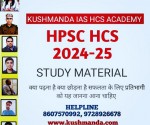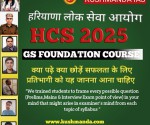PUNJAB PSC MAIN EXAM ENGLISH PAPER -2009
Punjab State Civil Services Combined Competitive Main Examination 2009
ENGLISH (COMPULSORY)
Q.1 REad the Comprehension Passage given below and answer the questions at the end
of the passage.Your answers highlight your anderstanding of the curcial ideas in the
passage.
During the 19th century industrualisation of America, the idea of work s inherent vertue
may have seemed temporarily implausible to generations who laboured in the mines
and mills and sweatshops. And yet for generation of immigrants, work was ulltimately
avialing; the numb toil of an illiterate grandfather got the father a foothold and a high
school education, and the son wound up in college of even law school. The motive of
work was all. To work for mere survival is disperate. To work for a better life for one’s
children and grand children lends the labour a fierce dignity. That dignity, and
unconquerably hopeful energy and aspiration-driving, persisting like a life force-is the
American quality that many find missing now.
The work ethic is not dead, but it is weaker now. The psychology of work is much
changed in America. The acute, painful memory of the Great Depression used to
enforce a dsciplined and occasionally docile approach to work-in much the way that
older citizens in the Soviet Union do not complain about scarce food and overpopulated
apartments, because they remember how much more horrible everything was during
the war.
Work is still a profoundly respectatble thing in America. Most Americans suffer a sense
of loss, of diminutuon, even of worthlessness if they are thrown out on the street. But
the blow seldom carries the life and death implications it once had the sense of personal
ruin. Because today’s workers are better educated than those in the past their
expectations are higher . Many younger Americans have rearranged their ideas about
what they want to get out of life.
Work is stll the complicated and crucial core of most lives, the occupation melded
inseparably to the identity . Freud said that the successful psyche is one capble of
love and of work . Work is the most thorough and profound organizing principle in
American life. If mobility has weakened old blood ties, our co-workers often form our
new family. Our tribe, our social world; we become almost citizens of our companies,
living under the protection of salaries, pensions and health insurance. The workplace
performs the function of community.
Only the fortunate toil in ways that express them directly. There is a Renaissance
splendoru in Leonardo’s effusion: “The works that the eye orders the hands to make
are infinite. “But most of us labour closer to the ground. Even there, all work expresses
the labourer in a deeper sense; all life must be workd at, protected, planted, replanted,
fashioned, cooked for, coaxexd, diapered, formed, sustained. Work is the way that we
tend the world, the way that people connect. It is the most vigorous, vivid sign of life in
individuasl and in civilizations.
Kushmanda Helpline – 08607570992, 09728926678
Answer the following questions:
(a) What value did work have for immigrants to America?
(b) The author observes that the psychology of work has changed in America. How
does the author mean by this remark?
(c) “Work is the most thorough and profound organizing principle is American
life.â€What does the author mean by this remark?
(d) Write a small composition in which you agree or disagree with the concludung
statement of the passage, “ Work is the way that we tend the world, the way that
people connect. It is the most vigorous, vivid sign of life- in individuals and in
civilizations.
(e) What to you is “work ethic? Is it a part of the work culture of your country?
(10 MARKS)
Q. 2 Write a Precis of the following pessage. The precis should be 1/3rd of the passage
given below and must have an appropriate title as well.
Ambition in one of those Rorschach words: define it and you instantly reveal a great
deal about yourself. Even that most neutral of works, Webster’s in its Seventh New
Collegiate Edition, gives itse If away, defining amobition first and foremost as “ardent
desire for rank, fame, fame, or power.†Ardent immediately assumes a heat
incommensurate with good sense and stability, and rank, fame andf power have
come under fairly heavyattack for at least a century. One can, after all, be ambitious
for the pulic good, for the alleviation fo suffering, for the enlightenment of mankind,
though there are some who asy that these are precisely the ambitious people most to
be distrusted.
Surely ambition is behind dreams of glory, of wealth, of love, of distinction, fo
accomplishment, of pleasure, of goodness. What life dose with our dreams and
expectations cannot, of course, be predicted. Some dreams, begun in selfishness,
end in rancour, other dreams, begun in selfishness,end in large-heartedness. The
unpredictablity of the outcome of dreams is on reason of cease dreaming.
To be sure, ambition, the sheer thing unallyed by some larger purpose than merely
clambering up, is never a pretty prospect to ponder.As drunks have done to alcohol,
the single-mended have done to ambition given it a bad name. Like a taste for alcohol,
ambition, too, does not always allow for easy satiation. Some people cannot handle it;
it has brought grif to others and not merely the ambitious alone. Still, none of this
seems sufficient cause for driving ambition under the counter.
If ambition is to be well regarded, the rewards to ambition-wealth, distinction, control
owner one’s destiny –must be deemed worthyfo the sacrifices made on ambition’s
behalf. If the tradition of ambition is to have vitality it must be widely shared; and it
because nowadays more than ever before, it is jthy who have usurped the platforms
of public discussion and wield the power of the spoken and written word in newspapers,
in magazines on television. In an odd way, it is the educated who have claimed to have
Kushmanda Helpline – 08607570992, 09728926678
given up on ambution as an ideal .What is odd is that they have perhaps most benefited
from ambition –if not always their own thaen that of their parents and grandparents.
There is heavy note of hypocrisy in this; a case of closing the barn door after the
horses have escaped with the educated themselves astride them.
(10 MARKS)
Q.3. Write a letter to the Editor of a national newspaper responding as a concerned citizen
about the caste dictated role of “Khap Panchayats†in many parts of India (200 words.)
(10 MARKS)
Q.4. Write a Composition on any ONE of the following;
a. “ If music be the food of love, play onâ€
b. “ Only fools and simpletons deposit money in banks, the wise obtain loansâ€
c. An imaginary infantry attack at night.
(10 MARKS)
Q.5. translation english to punjabi…….
(5 MARKS) (5 MARKS)
And Punjabi to English
Q.6. Correct the following sentences:
a. One of my relatives are settled in Canada.
b. I paid hundred rupees for this box.
c. He prefers Engineering than B.A. Economics.
d. This is the gentleman whose all sons are in the army.
e. It is high time that we leave the place.
(5 MARKS)
Q.7. Change the voice of the following sentences.
a. They have decided to start a new sugar factory here.
b. We may drive the car throgh the tunnel
c. The general body had passed two of the resolutions.
d. These great men should be remembered and honored by every Indian.
e. He was refused admittance.
(5 MARKS)
Q.8. Change the following sentences into Indirect Speech:
a. I said to my sister, “ Last night I went to the moves. I injoyed the film very much.â€
b. The mews reporte said, “I have visited the site of the accident. I have seen
everything.â€
c. He told me, “ I was reading a book when the explosion occurred.â€
e. She said, “ The lesson had already started when he arrived.â€
Kushmanda Helpline – 08607570992, 09728926678
(5 MARKS)
Q.9 Rewrite as dircted:
a. My nephews arrive here tomorrow. (change into present continuous tense)
b. The police caught the thier at hte raliway station. (change inta present tense)
c. Mr. Singh taught in this college for ten years. (change into present perfect
continuous)
d. Miss Nirupma has lived in Patiala for fifteen years. (change into past fense)
e. The play began when we reached the theatre (chnge into past perfect tense)
(5 MARKS)
Q.10 Join the following sentences using conjunction:
(a) My mother teaches in a colloge. (a) She is a singer on T.V.
(b) Milk is rich in Vitamins. (b) Itcontains a lot of calcium.
(c) Farmers in Haryana grow a lot of wheat. (c) They grow a lot of sugar- cane.
(d) Suresh is too old to become an actor (d) He is too fat
(e) Bharat wrote two popular novels. (e) He was a good speaker.
(5 MARKS)
Q.11. Fill in the blanks with suitable prepositions.
a. The gol-keeper prevented the ball ……………… coming into the net.
b. The accident occurred………………………a remote village.
c. Nothing is known ……………………….his where abouts.
d. Mithara is not responsible…………………………. that accident.
e. It depended ……………………………. his choice.
(5 MARKS)
Q.12.Punctuate the following paragraph:
Farah WILL you look this wasy exclaimed Mrs Aiyer you have been fidgeting all morning
farah tore her eyes reluctantly away form the coin she was holding in her hand and trid
to concentrate on her class teacher who talking about maths something to with
multiplication farah vaguely recalled
(10 MARKS)
Q.13.
(a) Write the synonyms of the following words:
i. absurd ii. Confer iii. Eccentric iv. Incite v. Ultimate
(2.5 MARKS)
(b) Write the antonyms of the following words:
i. affirm ii.deficit iii. Extravagant iv latter v trivial
(2.5 MARKS)
Q.14.Fill in the blaks with appropriate forms of wverbs given in brackets:
a. He was tired because he ………………………..work since mornig.
b. Riding a horse………………………(be) not as easy as riding a cycle.
c. His father prevented from …………………..(join) his friends group.
d. A sensible person can ……………………..(imagine ) the plight of others.
(5 MARKS)















